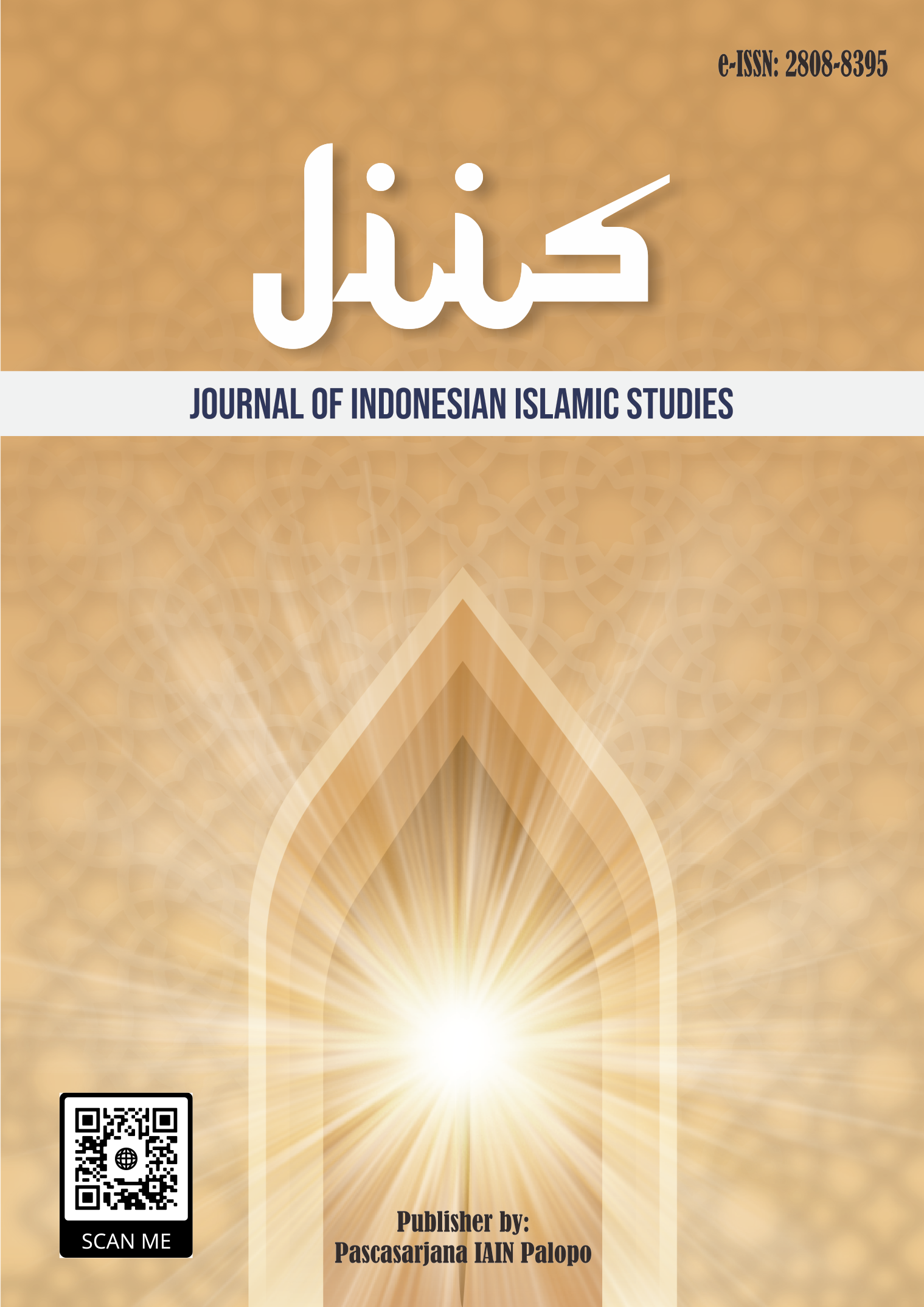Revitalizing the Roles of Higher Education in the Preservation of Harmony among Religious Society
DOI:
https://doi.org/10.24256/jiis.v2i2.4293Keywords:
East Indonesia, role of higher education, preservation of harmony, religious society in Indonesia, State Islamic Hugher EducationAbstract
Inter-Religious harmony is a strong foundation in the context of a pluralistic society. To treat harmony, the role of various elements of society, including universities, is needed. This paper focuses on the role of universities in the development of religious harmony through the mission of teaching education, research and community service. This study uses a qualitative approach with the subject of research is the leader and lecturer of the State Islamic Higher Education in Eastern Indonesia. The results of the study indicate that the State Islamic College of Sorong West Papua has conducted many dialogues with interfaith leaders. The Dato Karama Palu State Islamic Religion Institute provided extensive opportunities for lecturers in the activities of harmony formation including the formation of former terrorist prisoners. Makassar Alauddin State Islamic University facilitates interfaith studies with various Theological Colleges in Makassar. The inter-religious harmony is very influential in the life of the state to realize the Indonesian nation that is highly competitive in the international arena. The presence of Islamic Higher Education can provide a solution to anticipate the emergence of new social conflicts in various regions in Indonesia. This study recommends the need for synergies between universities in optimizing the role of universities in harmonizing harmony among religious groups.
References
Akil, Syamsuri, interview, “The Involvement of IAIN Palu Lecturers in an Effort to Harmonize Religious Harmonyâ€, IAIN Palu, July, 2018
Dewan Redaksi, Ditbinperta Depag RI dan PPIM UIN Jakarta, 2004, p. 67- 68
Din Syamsuddin, “Strategi Kerukunan Umat Beragama di Indonesia Pada Masa Depan, Pikiran-Pikiran Pokok dalam Seminar Nasional “Relio-Sentrisme: Antara Inklusivisme dan Eksklusivisme di Berbagai Agamaâ€, UIN Jakarta-Balitbang Depag RI, Jakarta, 2003, p. 1.
Eri R Hidayat et al., "Analisis Kebijakan Penanganan Konflik Etnis Di Kota Sorong Papua Barat Analysis of Ethnic Conflict Handling Policy in Sorong city, West Papua Province," 1979, 1–29. Jurnal Damai dan Resolusi Konflik Unhas Jakarta. Vol.3 No. 1 2017 http://jurnalprodi.idu.ac.id/index.php/DRK/article/download/67/pdf
Hamzah, “Speech of the Chief of STAIN Sorongâ€, http://stain-sorong.ac.id/sambutan-ketua-stain-sorong/
Hamzah, Interview, “The Role of STAIN Sorongâ€, august 2018, STAIN Sorong.
Husni Rahim, “IAIN dan Masa Depan Islam di Indonesiaâ€, dalam Komaruddin Hidayat dan Hendro Prasetyo (ed.), Problem dan Prospek IAIN Ontologi Pendidikan Tinggi Islam, (Jakarta: Ditbinperta Depag RI, 2000), p. 421-422.
Hidayat, Komaruddin and Hendro Prasetyo (ed.), “Problem dan Prospek IAIN Ontologi Pendidikan Tinggi Islamâ€, Jakarta: Ditbinperta Depag RI, 2000, p. 421-422 , h. 7
Muhaemin, “Posisi Strategis Mata Kuliah Agama Islam pada Perguruan Tinggi Umum di Kota Palopoâ€, Edukasia Islamika Jurnal Pendidikan Islam Vol. 2 No. 2, Desember 2017, hlm. 310-318. https://doi.org/10.28918/jei.v2i2.1674
Mukhibat, “Memutus mata rantai radikalisme dan terorisme berbasis Studi Etnopedagogi di PTUN dalam membentuk keberagaman inklusif dan pluralisâ€, ISLAMICA: Jurnal Studi Keislaman, 10(1), 222–247, 2015, Retrieved from https://goo.gl/X2QDuS.
Nor, Mohd Roslan Mohd, et al, “Analysing the conceptual framework of religious freedom and interreligious relationship in Islam†Indonesian Journal of Islam and Muslim Societies, Vol. 8, no.2 (2018), pp. 309-334, DOI : 10.18326/ijims.v8i2. 309-334.
Pababbari, Musafir, Interview, “Development Programs in the Fields of Education, Research, and Community Serviceâ€, UIN Alauddin Makassar, August, 2018.
Pettalongi, Saggaf, Interview, “Harmonizing Religious Life through Community Serviceâ€, IAIN Palu, July, 2018.
Said, M. M., Muhammad, N., & Elangkovan, K, “The continuity and change of Indonesia’s Islamic higher educational institutions in the amid of educational policy Changeâ€, Asian Social Science, 10(6), 71–80, 2014. https://doi.org/10.5539/ass.v10n6p71.
Suhadi, “Laporan kehidupan beragama: Kebebasan akademik dan ancaman yang meningkatâ€, Yogyakarta: CRCS-UGM, 2017.
TB. Simatupang, “Peranan Agama-Agama Dalam Negara Pancasilaâ€, Jakarta: BPK Gunung Mulia, t.th, p. 131
UIN Online, http://uin-alauddin.ac.id/uin-4715-dosen-uin-presentasi-makalah-di-malaysia.html
UU No. 12 of 2012 concerning Higher Education
Wekke, I. S., Hermawanto, A., & Ashrori, M, “Keberagaman mahasiswa di perguruan tinggi wilayah minoritas muslimâ€, Ulul Albab, 17(2), 135–146, 2016, Retrieved from https://www.researchgate.net/publication/316341054_Keberagamaan_Mahasiswa_di_Perguruan_Tinggi_Wilayah_Minoritas_Muslim/fulltext/58fa78d5a6fdccde9892a776/316341054_Keberagamaan_Mahasiswa_di_Perguruan_Tinggi_Wilayah_Minoritas_Muslim.pdf?origin=publication_d.
Yaumi, Interview, “Tri Dharma Activitiesâ€, UIN Alauddin Makassar, August, 2018.
Zainuddin, “Membangun Kerukunan Antarumat Beragama Melalui Pemahaman Doktrin Sejatiâ€, UIN Malang, 2013, https://www.uin-malang.ac.id/blog/post/read/131101/ membangun-kerukunan-antarumat-beragama-melalui-pemahaman-doktrin-sejati.html
Downloads
Published
How to Cite
Issue
Section
Citation Check
License
Authors who publish with the Journal of Indonesian Islamic Studies agree to the following terms:
- Authors have retained full articles copyright and grant the Journal of Indonesian Islamic Studies right of first publication with the work simultaneously licensed under Creative Commons Attribution License (CC BY 4.0) that allows others to share the work with an acknowledgement of the work's authorship and initial publication in this journal.
- Authors can enter into separate, additional contractual arrangements for the non-exclusive distribution of the Journal of Indonesian Islamic Studies published version of the work (e.g., post it to an institutional repository or edit it in a book), with an acknowledgment of initial publication in this journal.
- Authors are permitted and encouraged to post their work online (e.g., in institutional repositories or on their website) before and during the submission process, as it can lead to productive exchanges, as well as earlier and greater citation of published work (see also deposit policy and archiving on page journal).









